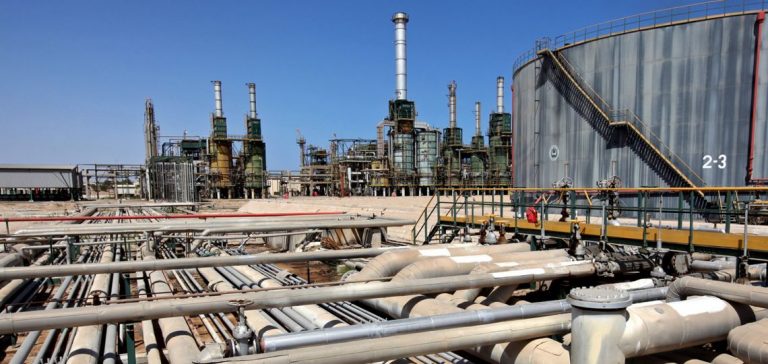Libya has experienced a significant increase in crude oil production after the end of a political crisis that had halved its output in September. The country had dropped from 1.15 million barrels per day (bpd) in July to just 580,000 bpd in September due to a conflict over the leadership of the Central Bank of Libya. The resolution of the conflict on October 3, with the appointment of Naji Essa as the new governor of the Central Bank, allowed production to resume. According to the National Oil Corporation (NOC), daily production has reached 1.22 million bpd, even surpassing pre-crisis levels.
Key oil fields have resumed operations, including Sarir, Mesla, and Es Sider, contributing to the production increase. Maintenance work was carried out during the shutdown period, enabling a more efficient restart. The NOC also announced the drilling of new wells in the Abu Attifel, Sharara, Nafoura, and Sarir fields, adding 12,000 bpd to the total production. These efforts are part of the NOC’s strategy to offset production losses and address the recent decline in oil prices.
Resumption of Exports and Impact on the Mediterranean Market
Libyan oil exports are also on the rise, with shipments scheduled from all major ports in the country in October. Vessels have already departed from Mellitah, Es Sider, Marsa El Brega, Ras Lanuf, Zueitina, and Marsa Hariga, according to loading schedules. This increase in exports could impact other crudes destined for Europe, as Libya’s light sweet oil is prized by refiners in the Mediterranean and Northwestern Europe.
The surge in Libyan supply could lead to a drop in prices of competing crudes such as Azeri Light, Algeria’s Saharan Blend, and some West African crudes like Nigeria’s Bonny Light. Differentials for Mediterranean-bound crudes had strengthened after the production halt in Libya but have started to weaken with the resumption of supply. Traders have reported an abundance of Libyan cargoes on the market, which could displace other crudes.
Production Outlook and Political Challenges
Although Libyan production is recovering, experts remain cautious about the NOC’s ambitious goals to reach 2 million bpd in the next five years. Complex relationships between key political actors, including Marshal Khalifa Haftar, Prime Minister Abdul Hamid al-Dbeiba, and NOC President Farhat Bengdara, can influence the stability of oil production. In the past, political conflicts have led to blockades of oil facilities, such as in 2022 when Haftar’s self-proclaimed Libyan National Army blocked key oil fields.
The oil sector accounts for about 93% of government revenues, making it a major stake in the country’s power struggles. Key institutions related to oil, such as the Ministry of Petroleum, the NOC, and the Central Bank, are often at the heart of political tensions. Since the fall of Muammar Gaddafi in 2011, Libya has experienced chronic instability, with rival governments in Tripoli in the west and Benghazi in the east since 2014.
Implications for the Global Oil Market
The recovery of Libyan production comes at a time when the global oil market is sensitive to supply fluctuations. Crude oil prices have recently declined, reaching nearly $70 per barrel in September due to sluggish Chinese demand and fears of oversupply in 2025. This price drop prompted the Organization of the Petroleum Exporting Countries (OPEC) to delay easing some production cuts.
Although Libya is exempt from OPEC quotas due to its unstable political situation, its growing production could influence market dynamics. A significant increase in Libyan supply could exert downward pressure on prices, affecting the strategies of other producing countries. However, the sustainability of this recovery will depend on internal political stability and the country’s ability to maintain uninterrupted production.






















